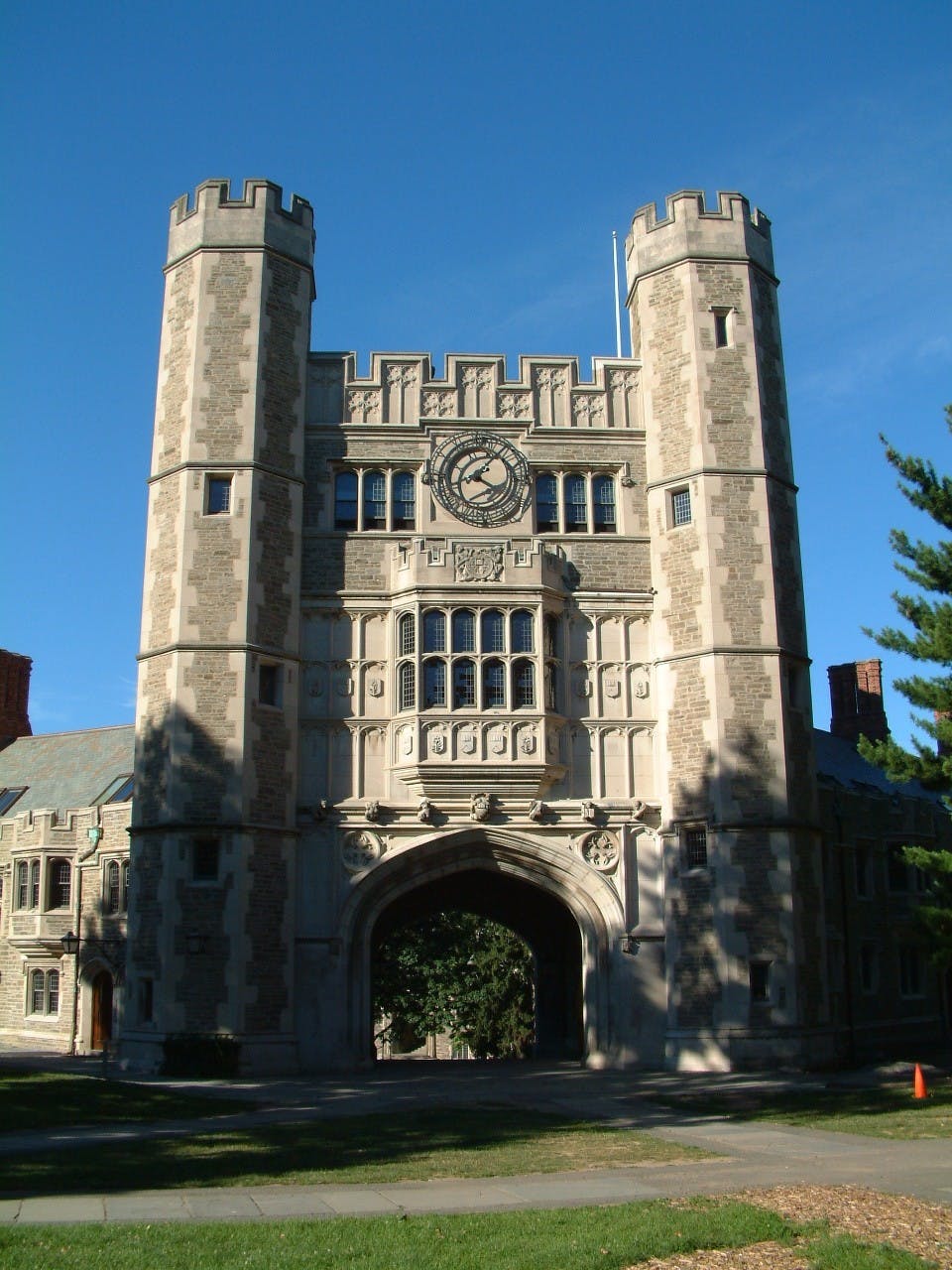49 Princeton Essay Samples
Updated for the 2025-2026 admissions cycle.
P
About Princeton
P
Founded in 1746, Princeton University is one of the oldest colleges in America, and it’s steeped in a rich history. Known for its wide range of interdisciplinary offerings, this New Jersey-based school has approximately 40 undergraduate concentrations. Princetonians benefit from smaller class sizes, specialized teacher attention, and an abundance of research possibilities. The school is known for its heavy focus on undergraduates. It’s thus no surprise that so many successful alumni have come out of Princeton, including three Supreme Court justices!
At a glance…
Acceptance Rate
5%
Tuition
$48,502
Average Cost
$9,836
Average SAT
1506
Average ACT
34
Location
Princeton, NJ
Real Essays from Princeton Admits
Prompt: Princeton has a longstanding commitment to service and civic engagement. Tell us how your story intersects (or will intersect) with these ideals.
The leaves crunched beneath my boots as I ascended the stone steps. Above me, squirrels zipped through the trees. I was hiking through Bach Ma National Park with my World Wildlife Federation group in search for traps and snares. The park was protected land, but illegal poaching was rampant. Wire traps were strung along the forest bed, ready to capture wild animals to be sold on the black market. It was just another threat to an animal population already endangered by expanding agriculture and infrastructure developments.
As we stopped for a break, our mentor told stories of how she used to roam the forests, waiting until sundown to see if the elusive saolas would come out. Her eyes lit up as she talked of their unicorn-like horns and striking white streaks. It seemed downright magical to me that such an animal was only discovered 30 years ago, and equally tragic that it had already reached critically endangered status in that time.
Over a year has passed since this hike, yet I still think about it all the time. Our work inspired me to build an adaptive animal sound recognition system — one that could gather real-time data about fauna populations in a non-invasive manner. For me, the key to conservation lies at the nexus of innovation and policy. I'm eager to harness the power of technology to protect natural habitats. But I'm also excited to advocate for government initiatives that ensure these spaces remain sustainable for generations to come.
Prompt: At Princeton, we value diverse perspectives and the ability to have respectful dialogue about difficult issues. Share a time when you had a conversation with a person or a group of people about a difficult topic. What insight did you gain, and how would you incorporate that knowledge into your thinking in the future?
In the short time I’ve been a youth leader, I’ve learned that my role is to make sure that each kid feels like they have a voice and that every lesson we teach allows kids of all identities to feel more welcome in our Church community. As a leader for my youth group, I review lectures sent to us by the youth ministry organization, LifeTeen, and my team makes sure that they are engaging enough for our kids to stay focused. Every so often, we’ll come across a more controversial topic, so we have to be careful about how we present it to the kids. On one particular day, we planned to discuss how the Church views the exploration of gender identity. However, our adult leaders did not have enough time to consult our team of youth leaders to review it and make it more relatable to the kids. As they taught the lesson, my team and I realized that what the lesson plans were stating about the transgender community could turn some of our members away from Christianity instead of bringing them closer to God. My main issue was that the lesson plan inaccurately depicted the transgender experience by assuming that they view gender and sex as “customizable” without allowing a transgender person to explain the issues that they face within our society. I crafted an email expressing our concerns and sent it to the leader of the LifeTeen organization. A few weeks later, they responded with no indication of them changing the original lesson plan to more accurately depict gender identity. Because of their inability to relay information to a modern audience, we stopped using their lesson plans to discuss social issues within our youth group. At our next meeting, I suggested that we have a more in-depth discussion about gender identity so the kids could express how they felt about the topic as well. I was proud that they also recognized that all humans, including transgender people, have a place within the Church and that they realized that God cares more about the content of our character.
Find an essay from your twin at Princeton P
P
Someone with the same interests, stats, and background as you

